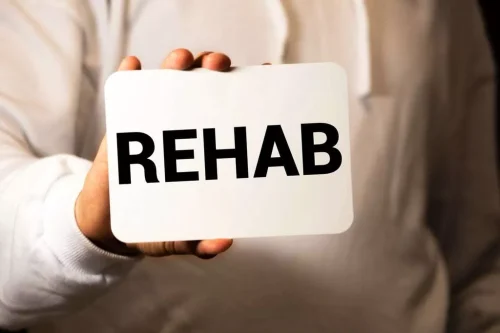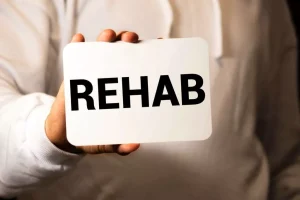When it comes to non-alcoholic drinks, the question of whether they can lead to a hangover is an intriguing one. Since non-alcoholic beverages contain little to no alcohol—often defined as having 0.5% ABV what can replace alcohol or less—they generally won’t produce the same effects as traditional alcoholic drinks that can lead to hangovers. When it comes to non-alcoholic spirits, many people wonder if they can truly replicate the flavor profile of traditional alcoholic beverages.
Alternative Stress Management
The good news is that non-alcoholic spirits have come a long way in recent years, with many brands working tirelessly to craft products that deliver complex flavors without alcohol. It can be difficult for some to be still, but as you practice, it becomes easier. You will feel the benefits of meditation immediately, and those benefits will continue to improve with regular practice.
Low-Alcohol or Reduced-Alcohol Beverages
Manufacturers harvest grapes and crush and ferment them to create a base wine. However, they then use techniques to reduce or remove the alcohol content. These beverages mimic the flavors and complexities of traditional wines but without alcohol, making them a suitable choice for wine enthusiasts. They taste good and take the edge off when I want something fizzy and fun without all the sugar. DRY is a fun line of non-alcoholic sodas that are specifically designed to pair with food like their alcoholic counterparts. The flavor profiles are elevated and “grown-up” which makes for a fun treat at dinner parties.
Brooklyn Lager ‘Special Effects’ (6 Pack)
The drinks are great quality – forget about those overly-sugary-hurts-your-teeth mocktails – and really feel like a treat. A citrussy alcohol-free ‘gin’, perfect when teamed with tonic and a slice of fruit. Pentire use plants found along the Cornwall coastline for this product, including rock samphire, sage and Cornish sea salt – plus a few ‘secret ingredients’.
- Instead of pouring a glass, consider brewing a calming herbal tea or indulging in a relaxing activity that promotes mindfulness, like yoga or meditation.
- “No matter what you are doing, if you are moving, oxygen is getting to the brain more efficiently and endorphins are being released,” Dr. De Santo says.
- Kava is made from the root or stump of the Piper methysticum (kava) shrub.
- Non-alcoholic beverages like mocktails, herbal teas, and sparkling water provide enjoyable alternatives.
- We also offer anti-craving medication, digital tools, virtual support groups, and expert medical and coaching support—all through an app on your smartphone.
It has been shown to improve concentration, memory retention, and focus. While alcohol is often used to come with stressors, it is also used as a means of relating to others or as a way to pass time. Over time, patterns of alcohol use can become engrained enough that it’s hard to stop. You may experience cravings just by walking in the door and sitting down. There’s no single factor that applies to everyone when it comes to needing addiction treatment, but if you’re considering treatment, it’s likely worth pursuing. If you want to reduce alcohol consumption and increase sleep (and get better sleep), commit to getting to bed by a certain time most nights a week.
Practice meditation
The extraction process mirrors traditional kava preparation methods by applying high pressure at low temperatures without any solvents. Ensuring all the beneficial phytochemicals from the kava root are captured in this easy-to-consume form. Make no mistake, you don’t need to follow the ketogenic diet to enjoy this rare drink. Other products like New Brew, TRU KAVA, Kin Eurphorics, Sun Chaser, and Zenify are good but feel different. With 53 calories per bottle and 0.5% alcohol, Lucky Saint is our favourite when it comes to alcohol-free beers. Rachel Clarkson RD, MSc, PGDip, BSc is a board-certified, Specialist Dietitian in the science of Nutrigenomics – best known as The DNA Dietitian.
If you’re a mindful drinker or just looking to drink less, I’ve heard of people blending the 0% Guinness with the boozy version and enjoying it, too. Being mindful of one’s surroundings and using visualization to reduce stress has become an increasingly popular technique. Though it sounds quite similar, visualization is different than mindfulness or meditation. Adaptogen-containing drinks are considered functional beverages, as discussed in our post on the Benefits of Collagen Tea. This tea is purposefully blended with Kava, a root traditionally used for relaxation and sleep. “Sunshine actually stimulates receptors on the back of the retina that stimulate hormone release and helps us regulate sleep patterns,” says Chester.
THC Drinks
“Sleep is really integrated with overall health.” Good, solid sleep may also reduce the urge to reach for that bottle of wine. “When we’re not getting restful sleep, we may be more likely to be impulsive and turn to a substance or start using it to help us go to sleep,” she adds. Alcohol isn’t the only supposed “quick fix” for the pandemic blues.
It also has many other benefits, including improving your mood, reducing pain, and helping you to live longer.10 Sometimes when we reach for alcohol, it’s because we’re looking for an escape from the stressors of life. It will wake you up, give you an energy boost and help clear your head. Matcha teas are great alternative beverages to alcohol if you’re looking to achieve a natural buzz.
Over the long-term, the consequences of heavy drinking are well-known. Throat cancer, stomach cancer, cirrhosis of the liver, and cardiovascular disease all have established links to alcohol consumption. Mental health is at risk too, as alcohol use disorders and depression have a causal relationship. The World Health Organization (WHO) has encouraged the alcohol industry to reduce alcohol content in its products. This strategy helps in temporary abstinence and potentially reduces excessive alcohol intake, playing a crucial role in reducing alcohol consumption among heavy drinkers. The result is a diverse lineup of nonalcoholic beer options catering to a range of tastes and preferences.




